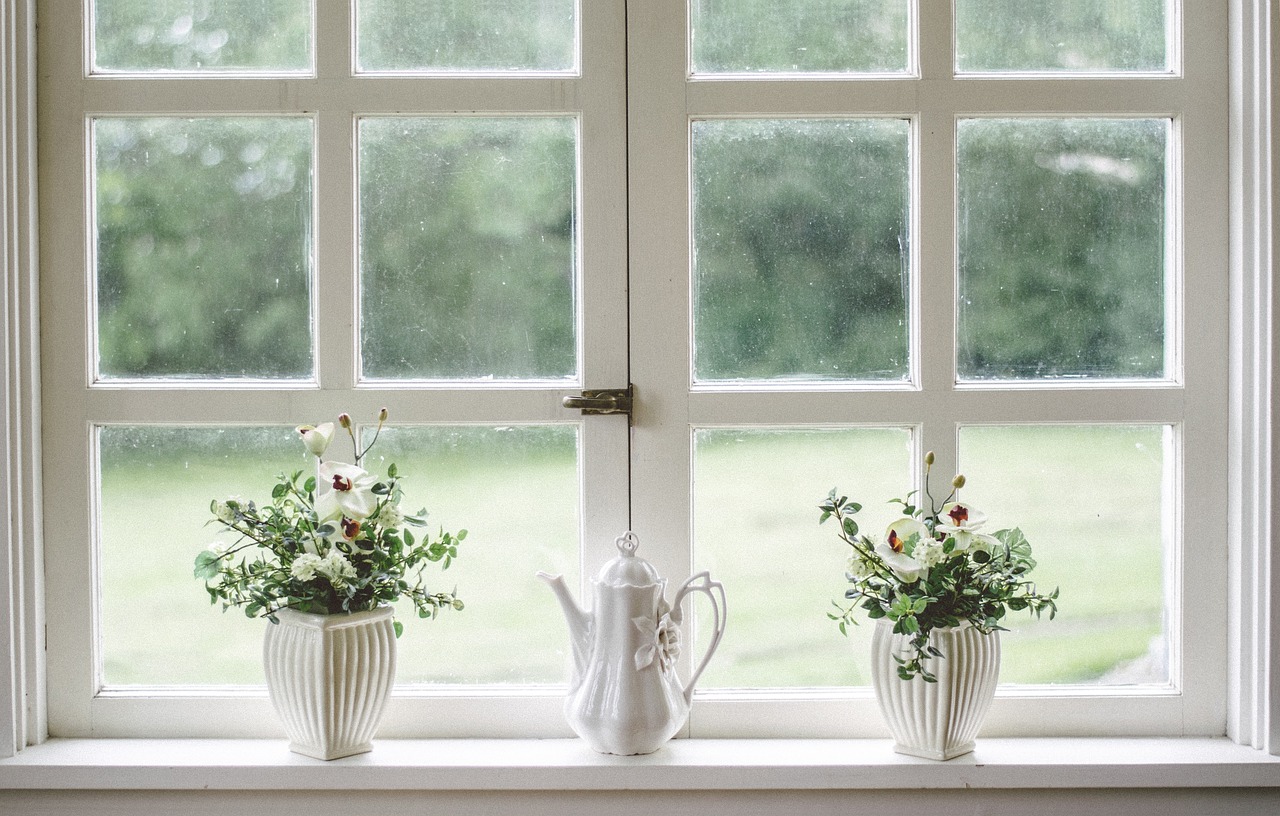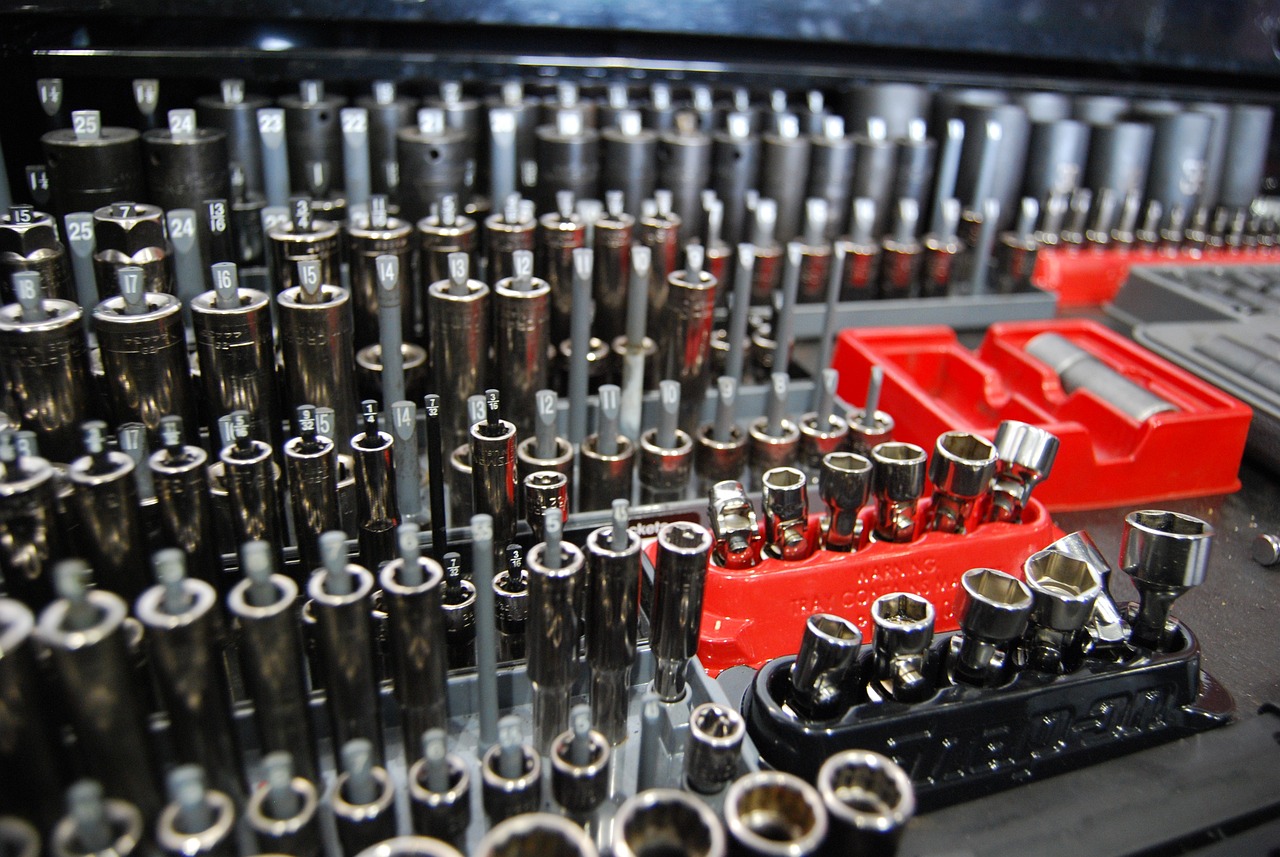Importance of Regular Maintenance for Home Safety
When it comes to our homes, we often think of them as our sanctuaries, a place where we feel secure and protected. However, maintaining that sense of safety requires more than just locking the doors at night. Regular maintenance is not just a chore; it is a vital practice that ensures our homes remain safe, functional, and valuable. Imagine your home as a living organism; just like we need regular check-ups to stay healthy, our homes require ongoing attention to thrive. Neglecting maintenance can lead to a host of problems, from minor inconveniences to major hazards.
Consider this: how many times have you heard about a fire caused by a faulty smoke detector? Or perhaps a slip and fall accident due to a loose floorboard? These incidents are often preventable with proactive upkeep. Regular maintenance allows homeowners to spot potential hazards before they escalate, creating a safer environment for everyone. It’s not just about fixing things when they break; it’s about ensuring everything is in working order to avoid accidents in the first place.
Moreover, regular maintenance plays a crucial role in preserving your home's value. A well-maintained house not only attracts potential buyers but also commands a higher price in the market. Think of your home as an investment; just as you wouldn’t let your stocks stagnate, you shouldn’t let your property fall into disrepair. By focusing on routine upkeep, you’re not just protecting your family; you’re also safeguarding your financial future.
So, what are the key areas to focus on when it comes to home maintenance? Here are some essential aspects:
- **Routine Inspections:** Regularly checking your home for issues can save you from costly repairs down the road.
- **Seasonal Checks:** Different seasons bring unique maintenance needs, like cleaning gutters in the fall or servicing your HVAC system in the spring.
- **Emergency Preparedness:** Ensuring that smoke alarms and fire extinguishers are functional can make a life-saving difference in emergencies.
In conclusion, the importance of regular maintenance for home safety cannot be overstated. It is a proactive approach that not only protects your loved ones but also enhances the value of your property. By investing time and effort into maintaining your home, you’re ensuring that it remains a safe haven for years to come.

Preventing Accidents
When it comes to maintaining a safe home, the importance of regular maintenance cannot be overstated. Think of your home as a living organism; just like a body needs regular check-ups to stay healthy, your home requires consistent attention to prevent accidents and hazards. Imagine waking up in the morning, stepping into your kitchen, and suddenly slipping on a wet floor because a leaky pipe went unnoticed. Such scenarios can be avoided with a little foresight and diligence.
One of the most critical areas to focus on is the safety equipment in your home. Regularly checking smoke detectors, carbon monoxide detectors, and fire extinguishers can make a world of difference. In fact, statistics show that homes with functioning smoke detectors are significantly less likely to experience fire-related fatalities. Just think about it: a simple battery change can be the difference between life and death.
Furthermore, the condition of your home's structure plays a vital role in accident prevention. For instance, loose railings on staircases or uneven flooring can pose serious risks. By conducting routine inspections, you can identify these potential hazards before they lead to accidents. It’s not just about fixing what’s broken; it’s about creating a safe environment for you and your loved ones.
To illustrate the importance of regular maintenance, consider the following checklist of common household safety checks:
- Smoke Detectors: Test monthly and replace batteries at least once a year.
- Carbon Monoxide Detectors: Check functionality and replace every five years.
- Fire Extinguishers: Inspect annually and ensure they are easily accessible.
- Handrails and Guardrails: Check for stability and repair any loose components.
- Electrical Systems: Look for frayed wires and ensure outlets are functioning properly.
By taking these steps, you not only reduce the risk of accidents but also cultivate a sense of peace of mind. After all, who wants to live in constant worry about the safety of their home? A little effort goes a long way in ensuring that your living space is as secure as possible.
In conclusion, regular maintenance is your best defense against accidents. By staying proactive and vigilant, you can protect your home and create a safe haven for yourself and your family. So, why wait? Start your maintenance checklist today and take that first step towards a safer home!
1. How often should I check my smoke detectors?
It's recommended to test smoke detectors monthly and replace the batteries at least once a year.
2. What are some signs that I need to perform maintenance?
Look for signs like peeling paint, leaks, or unusual noises from appliances. These can indicate that maintenance is needed.
3. Can I do maintenance myself, or should I hire a professional?
Many simple tasks can be done yourself, but for complex issues, it's wise to hire a professional to ensure safety.

Enhancing Property Value
When it comes to homeownership, one of the most significant advantages of regular maintenance is its undeniable impact on property value. Think of your home as a long-term investment; just like stocks or bonds, its value can fluctuate based on how well you manage it. By staying on top of maintenance tasks, you not only ensure a safe living environment but also position your property to attract potential buyers in the future. A well-maintained home sends a clear message: this place is cared for, and it’s worth every penny!
Consider this: a home that looks pristine and functions efficiently is far more appealing than one that appears neglected. When buyers walk through a property, they’re not just looking at the walls and floors; they’re imagining their lives there. If they see peeling paint, broken fixtures, or outdated appliances, they may question the overall integrity of the home. On the other hand, a home that has been regularly maintained can command a higher price in the market. In fact, studies have shown that homes with good upkeep can sell for up to 10-15% more than similar homes in disrepair!
So, what are some key areas to focus on that can significantly enhance your property value? Here are a few:
- Curb Appeal: First impressions matter! Simple tasks like landscaping, painting the front door, and maintaining the driveway can make a world of difference.
- Interior Upgrades: Regularly updating kitchens and bathrooms can yield a high return on investment. Even minor upgrades, like new cabinet handles or fixtures, can refresh the space.
- Energy Efficiency: As we’ll discuss later, energy-efficient upgrades not only save you money but also attract eco-conscious buyers.
Additionally, keeping records of your maintenance activities can serve as a valuable tool when it comes time to sell. Potential buyers appreciate transparency, and having documentation of regular maintenance can reassure them that they’re making a sound investment. Consider creating a simple maintenance log that tracks all the work done on your home. This log can include dates, tasks completed, and any receipts for repairs or upgrades. A well-organized log not only demonstrates your commitment to upkeep but can also be a selling point during negotiations.
In summary, enhancing your property value through regular maintenance is not just about keeping up appearances; it’s about ensuring that your home remains a safe, efficient, and attractive investment for years to come. So, roll up your sleeves and get started—your future self (and your wallet) will thank you!
Q: How often should I perform maintenance checks on my home?
A: It's advisable to conduct maintenance checks at least twice a year, focusing on seasonal tasks to keep everything in top condition.
Q: Will regular maintenance really increase my home's value?
A: Yes! Regular maintenance ensures your home is appealing and functional, which can lead to a higher resale value.
Q: What are some easy maintenance tasks I can do myself?
A: Simple tasks include changing air filters, cleaning gutters, and checking smoke detectors. These small actions can have a big impact!

Routine Inspections
When it comes to keeping your home safe and sound, are your best friend. Think of these inspections as a regular check-up for your house, much like you would do for your car or your own health. Just like you wouldn’t ignore that check engine light, you shouldn’t overlook the signs that your home might need some TLC. By making routine inspections a habit, you’re not just keeping your home in tip-top shape; you’re also catching potential problems before they turn into costly disasters.
So, what exactly should you be looking for during these inspections? Here are some key areas to focus on:
- Roof and Gutters: Check for any missing shingles or debris that could clog your gutters. A well-maintained roof can prevent water damage and leaks.
- Plumbing: Look for leaks under sinks and around toilets. Even a small drip can lead to significant water damage over time.
- Electrical Systems: Inspect outlets and cords for any signs of wear. Flickering lights or tripped breakers could indicate a bigger issue.
- Foundation: Look for cracks in the foundation or signs of water pooling. Early detection can save you from extensive repairs later.
By regularly checking these areas, you can catch issues before they escalate. For instance, a small leak in a pipe might seem insignificant at first, but over time, it can lead to mold growth or even structural damage. The money you save by addressing these minor issues can be substantial. You might think of it as an investment in your home’s future.
Additionally, consider keeping a maintenance log to track what you've inspected and any repairs made. This not only helps you stay organized but also provides a history of your home’s upkeep, which can be invaluable when it comes time to sell. Potential buyers will appreciate knowing that the home has been well-maintained, which can lead to a smoother sale process.
Incorporating routine inspections into your home maintenance schedule doesn’t have to be overwhelming. Set aside a few hours each season to go through your checklist. You can even make it a family affair—get everyone involved! Not only does it promote teamwork, but it also educates everyone about the importance of home safety and upkeep.
So, don’t wait for the warning signs to appear. Make routine inspections a regular part of your home maintenance routine. Your future self—and your wallet—will thank you!
Q: How often should I conduct routine inspections?
A: It’s best to conduct routine inspections at least twice a year, ideally once in the spring and once in the fall. This allows you to catch seasonal issues before they become major problems.
Q: What tools do I need for a home inspection?
A: Basic tools like a flashlight, ladder, and a moisture meter can help you inspect various areas of your home. Additionally, a notepad or a digital device for taking notes can be beneficial.
Q: Can I do inspections myself, or should I hire a professional?
A: Many routine inspections can be done by homeowners. However, for more complex issues, especially electrical or structural concerns, it’s advisable to hire a professional to ensure safety and compliance with local codes.
Q: What should I do if I find a problem during an inspection?
A: Document the issue and prioritize repairs based on urgency. For minor repairs, you might handle them yourself, but for significant concerns, it’s often best to consult a professional.

Seasonal Checks
When it comes to home maintenance, are like a breath of fresh air for your property. Just as we change our wardrobe with the seasons, our homes require a little TLC to stay in tip-top shape. Think of these checks as your home's annual health check-up, ensuring everything is running smoothly and efficiently. Each season brings its own set of challenges and maintenance needs, and being proactive can save you from costly repairs down the line.
In the spring, it's time to shake off the winter blues. Start by checking your HVAC system to ensure it's ready for the warmer months. A quick service can improve efficiency and prolong the life of your unit. Don't forget to inspect your roof for any winter damage, and clean out your gutters to prevent water buildup that can lead to leaks or foundation issues. Additionally, this is the ideal time to check your windows and doors for drafts, ensuring your home stays comfortable and energy-efficient.
As summer rolls in, the focus shifts to outdoor maintenance. Regularly mowing your lawn and trimming hedges not only keeps your yard looking great but also prevents pests from making a home in your garden. Inspecting your deck or patio for any signs of wear and tear is crucial, too. Summer is the perfect time for barbecues and gatherings, so making sure your outdoor space is safe and inviting is a must. Plus, consider checking your sprinkler system to ensure it’s watering your plants efficiently.
When autumn arrives, it's all about preparing for the colder months ahead. Start by cleaning out your gutters again to prevent clogs from leaves and debris. This prevents water from backing up and damaging your roof or foundation. It's also a good idea to check your heating system and change the filters, ensuring it will keep you warm during the chilly winter nights. Additionally, inspect your insulation and weather stripping around windows and doors to keep the warmth in and the cold out.
Finally, winter brings its own set of challenges. Regularly checking for ice dams on your roof can prevent significant water damage. Ensure your fireplace and chimney are clean and safe for use, especially if you enjoy cozying up by the fire. During this season, it’s also wise to keep an eye on your pipes, as freezing temperatures can cause them to burst. Taking the time to insulate your pipes can save you from a potential disaster.
In summary, seasonal checks are not just about keeping your home looking good; they are essential for maintaining its safety and efficiency. By dedicating a little time each season to these tasks, you can prevent larger issues and ensure your home remains a safe haven for you and your family. Remember, a well-maintained home is a happy home!
- How often should I perform seasonal checks?
It's recommended to perform seasonal checks at least once every three months, aligning them with the changing seasons. - What should I do if I find a problem during my seasonal check?
Address the issue promptly. Depending on the severity, you may need to consult a professional for repairs. - Are there any tools I should have for seasonal checks?
Basic tools like a ladder, screwdrivers, a flashlight, and a wrench can be very helpful for various checks around the home.

Emergency Preparedness
When it comes to keeping your home safe, **emergency preparedness** is a critical aspect that often gets overlooked. You might think, "Why worry about emergencies when everything seems fine?" But just like a good boy scout, it's always best to be prepared! Regular maintenance not only keeps your home in tip-top shape but also ensures that you're ready for any unexpected situations that may arise. Imagine facing a fire or a severe storm and realizing that your smoke detectors are dead or that your fire extinguisher hasn’t been checked in years. That’s a nightmare scenario!
One of the most important areas to focus on is your **alarm systems**. Regularly testing your smoke detectors and carbon monoxide alarms can literally save lives. Did you know that it’s recommended to test these alarms at least once a month? A simple push of a button can give you peace of mind. If you find that your alarms are beeping or malfunctioning, it’s time to replace the batteries or even the entire unit if it’s older than ten years. Keeping a checklist for these tasks can be a great way to stay on top of things!
Another often-neglected area is your **fire extinguishers**. Just like any other tool, they need to be maintained. Make sure they are easily accessible, fully charged, and inspected regularly. If you’ve never used one before, consider taking a few minutes to read the instructions or even practice with a friend. You wouldn’t want to be fumbling around in a panic when every second counts!
Additionally, it’s wise to create an **emergency plan** for your household. This plan should include escape routes, meeting points outside your home, and a list of emergency contacts. Share this plan with everyone in your household, including kids, so they know exactly what to do in case of an emergency. You can even conduct regular drills to ensure everyone is prepared. Think of it as a fire drill at school—better to practice and be safe than to panic when the real thing happens!
To help you stay organized, here’s a quick checklist of items to consider for your emergency preparedness:
- Check smoke detectors and replace batteries.
- Inspect fire extinguishers for functionality.
- Create and practice an emergency escape plan.
- Keep a first-aid kit stocked and accessible.
- Have an emergency contact list ready.
Remember, being prepared is not just about having the right tools; it’s also about knowledge and readiness. Regular maintenance can make a world of difference in how you respond to emergencies. So, take the time to ensure that your home is not just a place of comfort but also a fortress ready to withstand any storm, both literally and figuratively!
Q1: How often should I check my smoke detectors?
A1: It’s advisable to test your smoke detectors at least once a month and replace the batteries at least once a year. If your smoke detector is over ten years old, consider replacing the entire unit.
Q2: What should I include in my emergency kit?
A2: Your emergency kit should include items like water, non-perishable food, a flashlight, batteries, a first-aid kit, and any necessary medications. Don't forget important documents and contact information!
Q3: How can I ensure my fire extinguisher is functional?
A3: Regularly check that the pressure gauge is in the green zone, inspect for any physical damage, and ensure it is easily accessible. Consider having it serviced every few years by a professional.
Q4: What’s the best way to create an emergency plan?
A4: Involve everyone in your household in the planning process. Discuss escape routes, set a meeting point outside, and assign roles if necessary. Practice the plan regularly to ensure everyone knows what to do in an emergency.

Essential Repairs
When it comes to maintaining a safe and comfortable home, are non-negotiable. Think of your home as a living organism; just like we need regular check-ups to stay healthy, your home requires attention to ensure it remains safe and functional. Ignoring minor issues might seem harmless at first, but these small problems can snowball into significant headaches down the line. For instance, a tiny leak in a pipe can lead to water damage, mold growth, and costly repairs if left unattended. So, what should homeowners focus on when it comes to essential repairs?
First and foremost, plumbing issues should be at the top of your list. Regularly check for leaks under sinks, around toilets, and in basements. A dripping faucet might not seem like a big deal, but it can waste gallons of water and increase your utility bill. Similarly, ensure that your water heater is functioning correctly; a malfunctioning heater can lead to cold showers and, in some cases, flooding if it bursts.
Next up are electrical systems. Flickering lights or frequently blown fuses are signs that something is amiss. These issues can pose serious fire hazards, so it’s crucial to address them immediately. Consider hiring a qualified electrician to inspect your wiring and ensure everything is up to code. Remember, safety first!
Another area that often gets overlooked is the roof. Regularly inspect your roof for missing shingles or signs of wear and tear. A well-maintained roof protects your home from the elements, and neglecting it can lead to leaks and extensive damage inside your home. If you notice any issues, don’t hesitate to call in a professional. It’s always better to be safe than sorry!
Furthermore, don’t forget about windows and doors. Check for drafts, which can indicate poor sealing or damaged frames. Not only do drafts make your home less comfortable, but they also drive up energy costs. Consider resealing or replacing weather stripping to keep your home cozy and energy-efficient.
Lastly, keep an eye on your HVAC system. Regular maintenance, such as changing filters and scheduling annual servicing, can prevent breakdowns and ensure your system operates efficiently. A well-functioning HVAC system not only keeps your home comfortable but also helps save on energy bills.
In summary, paying attention to these essential repairs can significantly impact your home’s safety and longevity. By being proactive, you can avoid larger problems that often come with neglect. Remember, a stitch in time saves nine!
- How often should I perform home maintenance checks?
It's recommended to conduct a thorough home maintenance check at least twice a year, ideally once in spring and once in fall. - What are the signs that I need to address essential repairs?
Look for signs such as leaks, drafts, strange noises from appliances, and flickering lights. These can indicate underlying issues that require immediate attention. - Should I do repairs myself or hire a professional?
While some minor repairs can be handled by homeowners, it's often best to hire professionals for electrical, plumbing, and roofing issues to ensure safety and compliance with local codes.

Energy Efficiency
When it comes to maintaining a home, one of the most impactful areas to focus on is . Not only does it help reduce your monthly bills, but it also contributes to a healthier planet. Think of your home as a living entity; just like we need regular check-ups to stay healthy, your home requires consistent maintenance to ensure it runs efficiently. By dedicating some time to energy efficiency, you can create a more comfortable living environment while also saving money.
Regular maintenance can significantly improve your home's energy efficiency. Simple tasks, such as sealing windows and doors, can prevent drafts that lead to uncomfortable temperatures and inflated energy bills. Imagine trying to keep warm on a chilly night with a window slightly ajar; it’s a losing battle! By ensuring that your home is properly sealed, you can maintain a steady temperature and reduce the strain on your heating and cooling systems.
Another essential aspect of energy efficiency is the proper upkeep of your appliances. Over time, appliances can become less efficient due to wear and tear or lack of maintenance. Regularly servicing your appliances, such as your refrigerator, washing machine, and HVAC system, ensures they are running at peak performance. This not only saves you money but also extends the lifespan of these appliances. Think of it like giving your car a tune-up; it runs better and lasts longer with a little care!
For homeowners looking to take their energy efficiency to the next level, upgrading to energy-efficient appliances is a wise investment. These modern devices are designed to use less energy while still delivering excellent performance. For example, Energy Star-rated appliances consume significantly less energy than their conventional counterparts. So, if you’re considering a new appliance, why not choose one that benefits both your wallet and the environment?
Proper insulation is another critical factor in maintaining energy efficiency. Insulation acts as a barrier, keeping the desired temperature inside your home, whether it’s warm or cool outside. Regular checks can help identify areas where insulation may be lacking, such as attics or basements. By ensuring that your home is adequately insulated, you can avoid the discomfort of fluctuating temperatures and reduce your energy consumption. Think of your home as a thermos; the better insulated it is, the longer it keeps your drinks hot or cold!
In summary, focusing on energy efficiency through regular maintenance not only contributes to a more comfortable living environment but also leads to significant savings on your energy bills. By implementing simple practices like sealing drafts, servicing appliances, and ensuring proper insulation, you can enjoy a home that is both energy-efficient and cost-effective. Remember, a little effort in maintaining your home can go a long way in creating a safe, comfortable, and efficient space.
- What are some easy ways to improve energy efficiency at home? Simple tasks like sealing windows and doors, regularly servicing appliances, and upgrading to energy-efficient models can significantly enhance your home's energy efficiency.
- How often should I perform maintenance on my appliances? It's recommended to service major appliances at least once a year to ensure they are operating efficiently and to extend their lifespan.
- What role does insulation play in energy efficiency? Insulation helps maintain a consistent temperature inside your home, reducing the need for heating and cooling, which in turn lowers energy consumption and costs.

Upgrading Appliances
Upgrading appliances is not just a trend; it’s a necessity for modern homeowners looking to boost both energy efficiency and overall comfort. Imagine stepping into your kitchen and being greeted by a sleek, state-of-the-art refrigerator that not only keeps your food fresh but also consumes significantly less energy than your old model. This isn’t just a dream—it’s a reality that many homeowners are embracing. When you upgrade your appliances, you’re investing in a future that’s not just better for your wallet but also kinder to our planet.
Let’s face it: older appliances can be energy hogs, which means they not only drive up your utility bills but can also lead to a less efficient home. For instance, according to the U.S. Department of Energy, upgrading to an energy-efficient refrigerator can save you anywhere from $50 to $100 annually on your electric bill. That’s money that could be better spent on something fun, right?
But how do you know when it’s time to upgrade? Here are some telltale signs:
- Your appliance is more than 10 years old.
- You notice an increase in your energy bills.
- Your appliance requires frequent repairs.
- It’s making strange noises or isn’t functioning properly.
When considering an upgrade, it’s important to choose appliances that are not only energy-efficient but also fit your lifestyle. For example, if you love cooking, investing in a high-quality oven with multiple cooking modes can enhance your culinary adventures. Or, if you’re constantly on the go, a smart dishwasher that allows you to start cycles remotely can save you valuable time.
Moreover, regular maintenance of these upgraded appliances is crucial. Just because they’re new doesn’t mean they’re immune to problems. Simple tasks like cleaning filters, checking seals, and following manufacturer guidelines can ensure that your appliances continue to run efficiently for years to come. It’s like having a shiny new car; if you don’t take care of it, it won’t stay new for long!
In conclusion, upgrading your appliances is a smart move that can lead to significant savings and a more comfortable living environment. With the right choices, you can create a home that not only looks great but also operates efficiently, ensuring that you and your family enjoy every moment spent within its walls.
- How often should I upgrade my appliances? It’s generally recommended to consider upgrading appliances that are over 10 years old or if they are showing signs of wear and tear.
- What are the benefits of energy-efficient appliances? Energy-efficient appliances can lead to lower utility bills, reduced environmental impact, and often come with tax incentives.
- How can I maintain my upgraded appliances? Regular maintenance includes cleaning, checking seals, and following the manufacturer's maintenance recommendations.

Insulation and Sealing
Insulation and sealing are often overlooked aspects of home maintenance, yet they play a crucial role in creating a comfortable living environment and enhancing energy efficiency. Imagine your home as a cozy blanket; without proper insulation, it’s like wearing a sweater with holes—no matter how warm it is outside, you’ll still feel the chill. Insulation works to keep the warm air in during winter and the cool air in during summer, making your home a refuge from the elements.
Sealing refers to the process of closing gaps and cracks that allow air to leak in and out of your home. These leaks can come from various sources, including windows, doors, and even the foundation. By sealing these leaks, you can prevent drafts that not only make your home uncomfortable but also lead to increased energy bills. Did you know that a well-sealed home can save you up to 20% on heating and cooling costs? That’s a significant amount of money that could be better spent elsewhere!
To effectively insulate and seal your home, consider the following essential areas:
- Attics and Crawl Spaces: These areas often have the most significant gaps in insulation. Adding insulation here can drastically improve your home’s energy efficiency.
- Windows and Doors: Check for gaps around frames and consider using weather stripping or caulk to seal them. Energy-efficient windows can also make a big difference.
- Basements: Insulating basement walls can help keep your home warm and prevent moisture issues.
Another important factor is the type of insulation you choose. There are several options available, including fiberglass, foam, and cellulose. Each has its own benefits and drawbacks, so it’s essential to do your research or consult with a professional to determine what works best for your home. For instance, while fiberglass is widely used and cost-effective, spray foam insulation provides superior air sealing properties and can fill in gaps that other types might miss.
Furthermore, regular checks and maintenance of your insulation and sealing can prevent costly repairs down the line. Just like you wouldn’t ignore a leaky roof, you shouldn’t neglect your insulation either. A quick inspection once or twice a year can help you identify any issues early on, ensuring that your home remains energy-efficient and comfortable.
In summary, investing time and resources into proper insulation and sealing is not just about comfort; it’s a smart financial decision that pays off in the long run. By keeping your home well-insulated and sealed, you’re not only enhancing your living conditions but also protecting your investment. So, grab your tools and get to work—your future self will thank you!
- How often should I check my insulation? It's recommended to check your insulation at least once a year, especially before the heating or cooling seasons.
- What are the signs that I need to improve my insulation? Signs include drafts, high energy bills, and fluctuating indoor temperatures.
- Can I insulate my home myself? Yes, many homeowners can do basic insulation work, but for complex areas, it's best to consult a professional.
Frequently Asked Questions
- Why is regular home maintenance important for safety?
Regular home maintenance is crucial for safety because it helps identify potential hazards before they become serious issues. For example, checking smoke detectors and ensuring that electrical systems are functioning properly can prevent accidents and save lives. Just like a car needs regular check-ups to keep it running smoothly, your home requires ongoing attention to stay safe.
- How does maintenance affect property value?
Maintaining your home can significantly enhance its market value. A well-kept property attracts potential buyers and can lead to higher resale prices. Think of it this way: a beautifully maintained garden is more appealing than a wild, overgrown one. The same principle applies to your home—regular upkeep makes it more attractive and valuable.
- What are some essential repairs I should focus on?
Essential repairs include fixing leaks, addressing electrical issues, and repairing any structural damage. Ignoring these minor problems can lead to major safety hazards and costly repairs down the line. Consider it like ignoring a small crack in your windshield; if left untreated, it could spread and compromise the entire glass.
- What should I include in my seasonal maintenance checklist?
Your seasonal maintenance checklist should cover tasks like gutter cleaning, HVAC servicing, and checking the condition of your roof. Each season brings unique maintenance needs, so staying ahead of them helps ensure your home remains in top shape throughout the year. It’s like preparing your wardrobe for changing seasons—being proactive keeps you comfortable and stylish!
- How can regular maintenance improve energy efficiency?
Regular maintenance can enhance your home's energy efficiency by ensuring that appliances and systems are operating optimally. Tasks like sealing windows and servicing heating and cooling units can reduce energy bills and environmental impact. Just as a well-tuned engine runs more efficiently, a well-maintained home uses energy more effectively.
- What role does emergency preparedness play in home maintenance?
Emergency preparedness is a vital aspect of home maintenance. Ensuring that smoke alarms, fire extinguishers, and emergency exits are functional can make a significant difference during a crisis. Think of it as having a first-aid kit ready; being prepared can save lives when it matters most.
- How often should I conduct routine inspections?
It's a good idea to conduct routine inspections at least twice a year. This proactive approach allows you to catch issues early and address them before they escalate into major repairs. Just like visiting the doctor for a check-up, regular inspections keep your home healthy and safe.



















